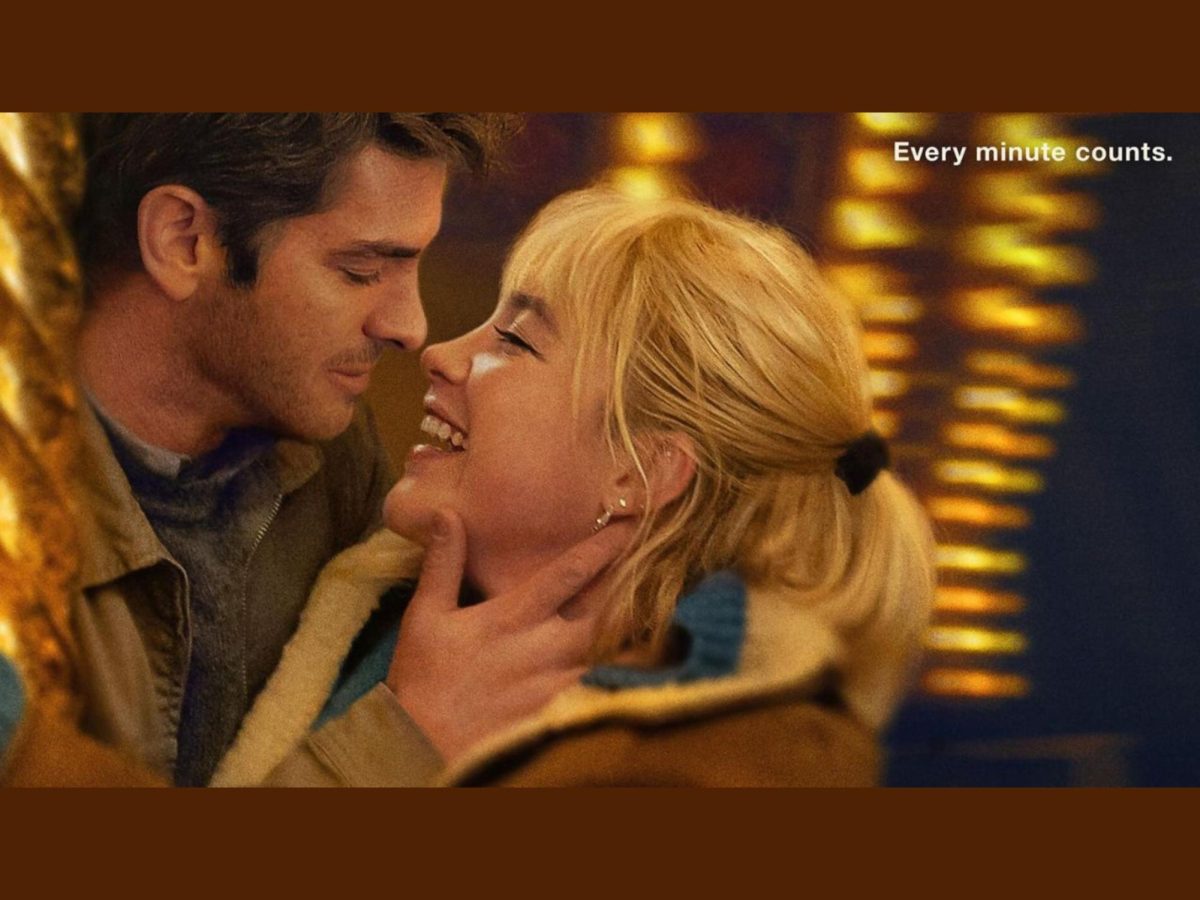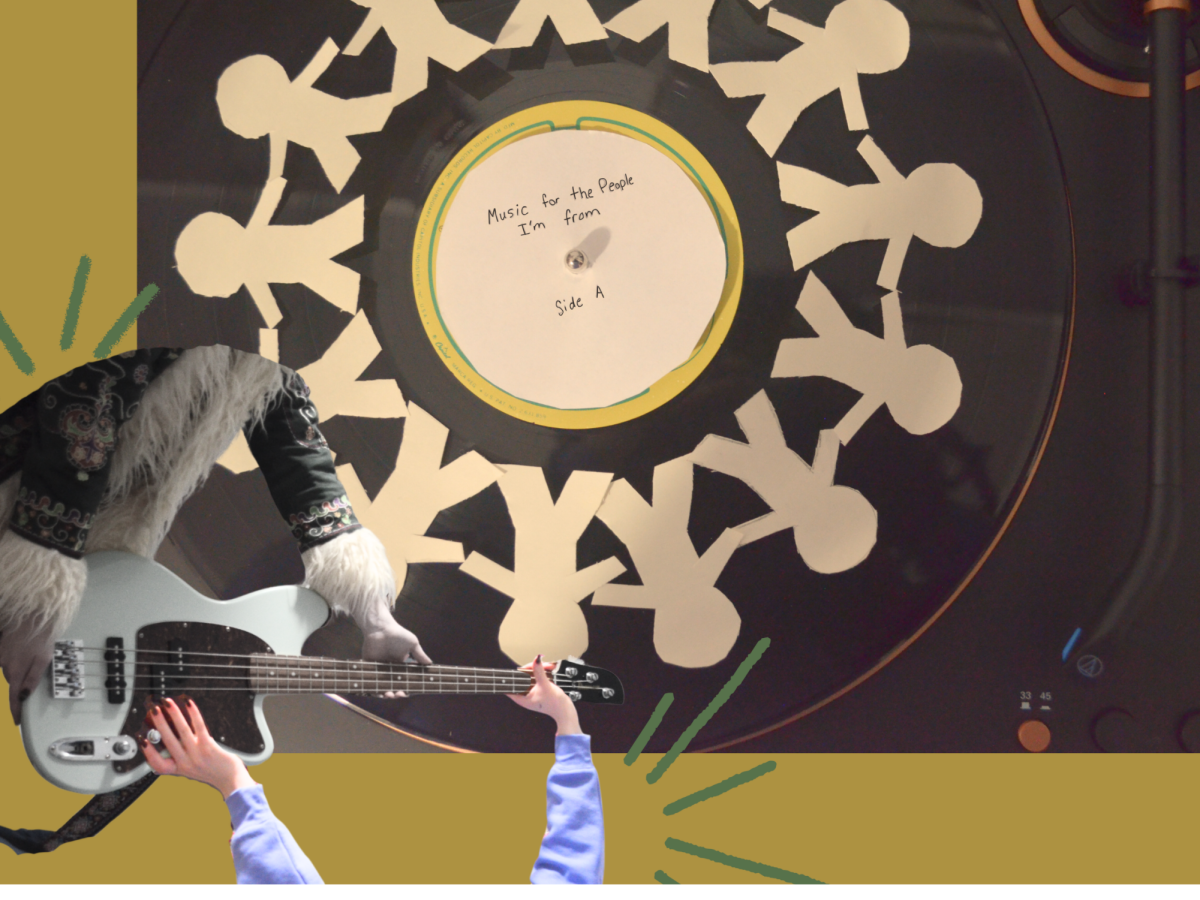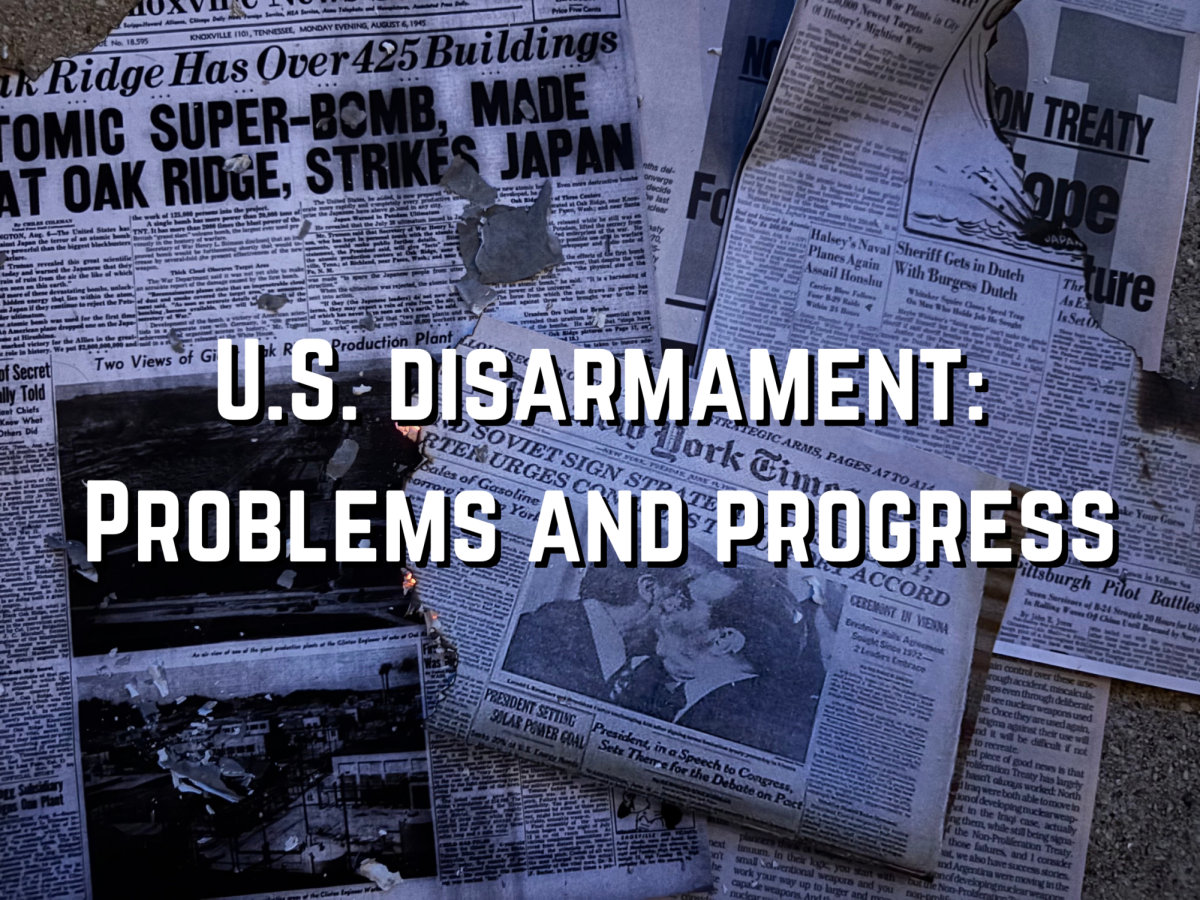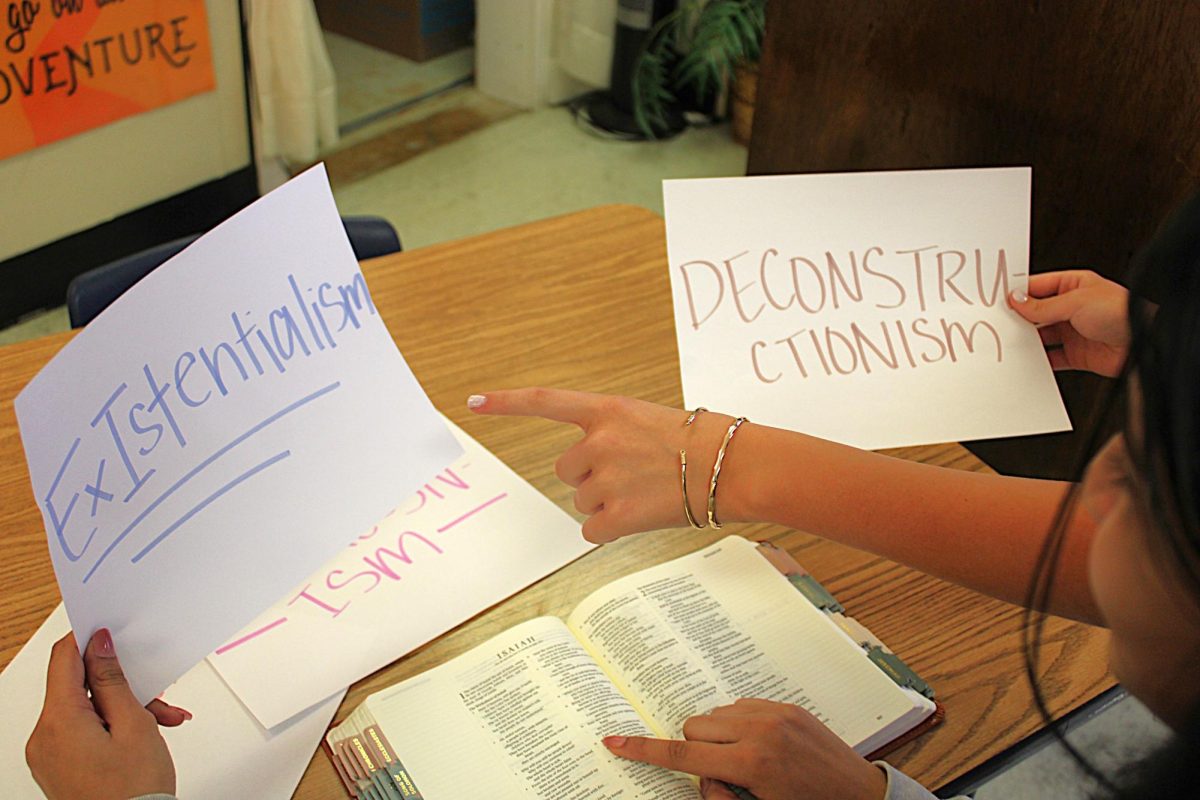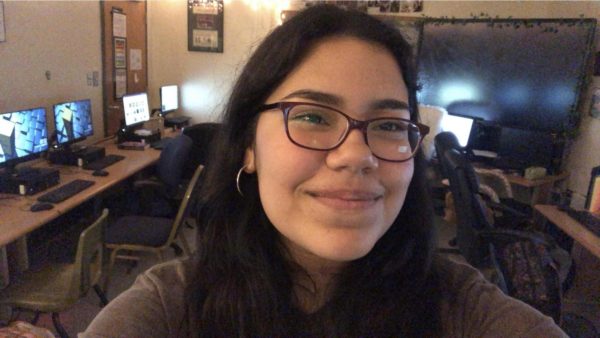October 18, 2024, the A24 film “We Live in Time” was released in several theaters across the U.S.. The United Kingdom (UK)-based movie, which stars Oscar-nominated actors Andrew Garfield and Florence Pugh, certainly excited fans after its first trailer was released on July 10. While the creators of this highly anticipated film advertised it as a romantic drama, fans did not expect this emotional and inspiring movie to change their views of life.
Mainly taking place in England, this movie tells the story of how a headstrong professional chef, Almüt Brühl, played by Pugh, and a divorcé, Tobias Durand, played by Garfield, experience a strange meet-cute and become involved in each other’s lives. The couple’s story spans over a decade and shows the ups and downs of a mature adult relationship.
The movie constantly transitions from the past and present to eventually reveal the main plot point; Almüt’s ovarian cancer diagnosis. Throughout the entire film, the pair face difficult decisions of staying together, bearing children and how to deal with Almüt’s medical problems. Towards the beginning of the film, Tobias mentions wanting kids, while Almüt reveals she only wants kids in “another life,” leading to their first real fight and ultimately resulting in their immediate break-up. After romantically apologizing for acting selfish, Tobias wins Almüt back. However, soon after, Almüt receives a life-changing call.
While jogging, Almüt’s doctor calls and requests for her to visit the hospital as soon as possible. Later that night, Almüt tells Tobias that her MRI scan revealed ovarian cancer and that her doctor recommends freezing her eggs until the end of her treatment. Almost immediately, the couple decides to risk the chances of the cancer clearing, mainly due to age, and decide to try for a baby. Ultimately, this decision writes the rest of the couple’s story when the cancer returns nearly a decade later.
“The beginning of the movie was a bit strange because the clear answer to me [in regards to the ovarian cancer diagnosis] was to freeze the eggs and get rid of the cancer with treatment. If Almüt had done the treatment when she first got diagnosed, then the cancer wouldn’t have come back years later. But with the ending, I completely understood the decisions she made throughout the movie, and I definitely changed my mind about a couple of things,” senior Tessa Saunders said.
When rediscovering the cancer, Almüt decides to once again decline her treatment options and rather live her life happily with her partner and their daughter Ella. Then, only after Tobias proposes, does Almüt decide to undergo treatment for the sake of her fiancé and child. In theaters, fans assumed this would be the couple’s happy ending, however, Almüt once again receives another life-changing call.
Almüt’s old colleague calls her to participate in the Bocuse d’Or, a famous worldwide cooking competition. As a professional chef, this opportunity stood out to Almüt but conflicted with both her chemotherapy schedule and wedding date. At first, she secretly decides to skip chemotherapy, but when Tobias finds out, the two aim to help her follow her lifelong dream. Throughout the movie’s ending, fans realize a subtle hint as to what happens to all the characters after the Bocuse d’Or. With the film’s clever foreshadowing, viewers can conclude that Almüt and Tobias lived their lives fully, and enjoyed their decision of raising a child together to the end.
“I really love that throughout the entire movie, we are shown a very supporting and loving, mature couple. The ending was extremely sad but it was also touching to know that in the end, all characters were happy that they lived their lives to the fullest. This movie really changed my perspective on multiple things in life, and reminded me to enjoy life,” senior Aubrey McPherson said.
With its talented cast, emotional storyline and powerful characters, “We Live in Time” portrays a beautiful romantic drama movie that opens viewers’ eyes to life. With its UK release January 1, 2025, this film will surely win the hearts of fans worldwide.
The Chant’s score: A+




